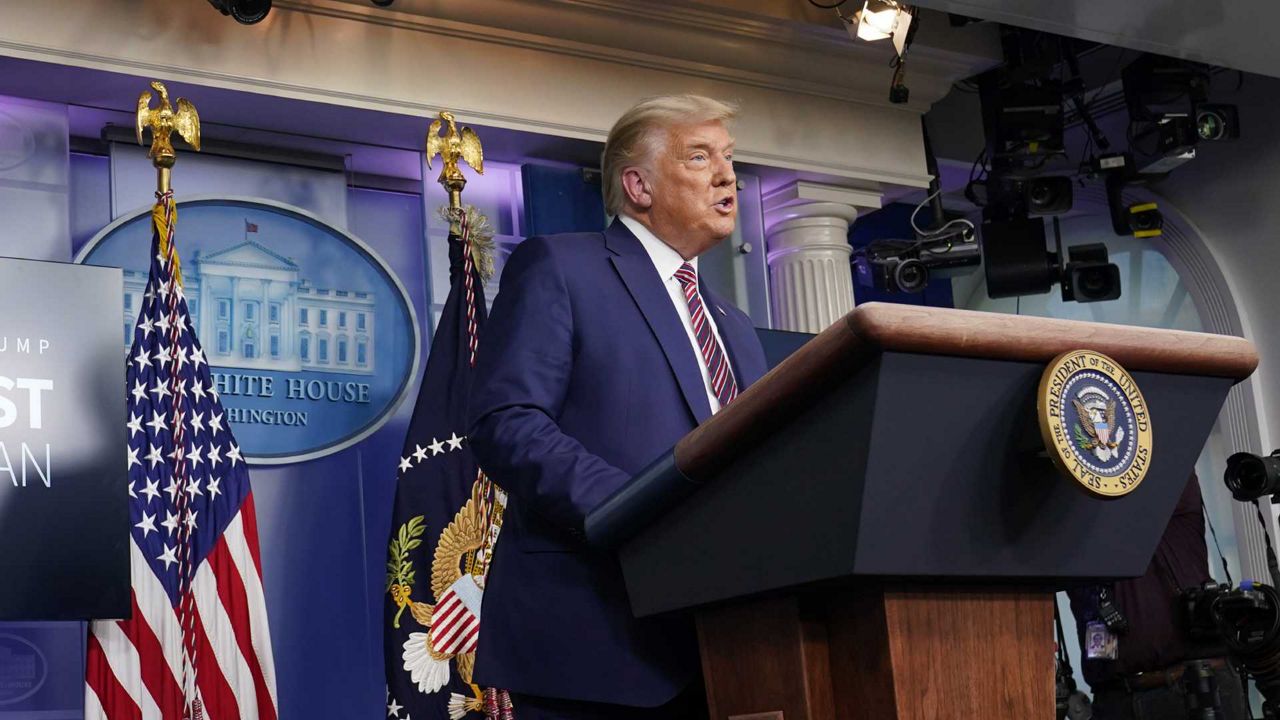Canada is blocking the mass export of certain prescription drugs amid concern that a new rule from U.S. President Donald Trump will lead to a supply shortage in the country, officials said Saturday.
In July, President Trump issued an executive order authorizing, in part, “the safe importation of certain lower-cost prescription drugs from Canada.” The United States’ “Importation of Prescription Drugs,” the final rule from the Department of Health and Human Services allowing for the import of certain drugs from Canada, went into effect on Monday, Nov. 30.
But public health officials in Canada had already issued new rules that effectively blocked Trump’s order from impacting America’s northern neighbor.
“Our health care system is a symbol of our national identity and we are committed to defending it,” Canada’s Minister of Health Patty Hajdu said in a statement, per Reuters. “The actions we are taking today will help protect Canadians’ access to the medication they rely on.”
Under Canada’s new measures, certain prescription drugs are prohibited from being ”distributed for consumption outside of Canada if that sale would cause or worsen a drug shortage.” Companies are also required to provide information to “assess existing or potential shortages,” which are to be completed within 24 hours “if there is a serious or imminent health risk.”
Although prescription drug prices are higher in Canada than in other parts of the world, they are cheaper than those in the United States.
“Canada has repeatedly stated that this rule would not be an effective approach to reducing drug prices in the U.S. since the Canadian market is small, representing only 2% of global pharmaceutical sales compared to 44% for the U.S.,” Canadian officials reiterated on Saturday.
Canada’s measures went into effect on Friday, just a few days before the United States’ new “Importation of Prescription Drugs” rule was enacted.
Trump’s executive order over the summer came as part of a series of sweeping reforms to the nation’s drug pricing laws, an issue the president has taken a renewed interest in as he finishes out his term in office. Trump came into office accusing pharmaceutical companies of “getting away with murder” and complaining that other countries whose governments set drug prices were taking advantage of Americans.
As a candidate in 2016, Trump advocated for Medicare to negotiate prices. As president, he dropped that idea, objected to by most Republicans. Instead Trump began pursuing changes through regulations.
On Nov. 20, the Trump administration issued another slew of regulations that could lower the prices Americans pay for many prescription drugs. The first will tie what Medicare pays for medications administered in a doctor’s office to the lowest price paid among a group of other economically advanced countries. That’s called the “most favored nations” approach.
The international pricing rule covers many cancer drugs and other medications delivered by infusion or injection in a doctor’s office.
It applies to 50 medications that account for the highest spending under Medicare’s “Part B” benefit for outpatient care.
The administration estimates it could save $28 billion over seven years for Medicare recipients through lower copays. It would take effect Jan. 1.
The second rule requires drugmakers for brand-name pharmacy medications to give Medicare enrollees rebates that now go to insurers and middlemen called pharmacy benefit managers. It would take effect Jan. 1, 2022.
The changes are opposed by those aligned with the pharmaceutical industry, but may be a mixed bag for Democrats.
Relying on international prices to lower U.S. costs is an approach also favored by Democrats, including President-elect Joe Biden. But Democrats would go much further, authorizing Medicare to use lower prices from overseas to wrest industry concessions for all expensive medications, not just those administered in clinical settings.
Spectrum News has reached out to the White House and the Department of Health and Human Services for comment.
The Associated Press contributed to this report.



